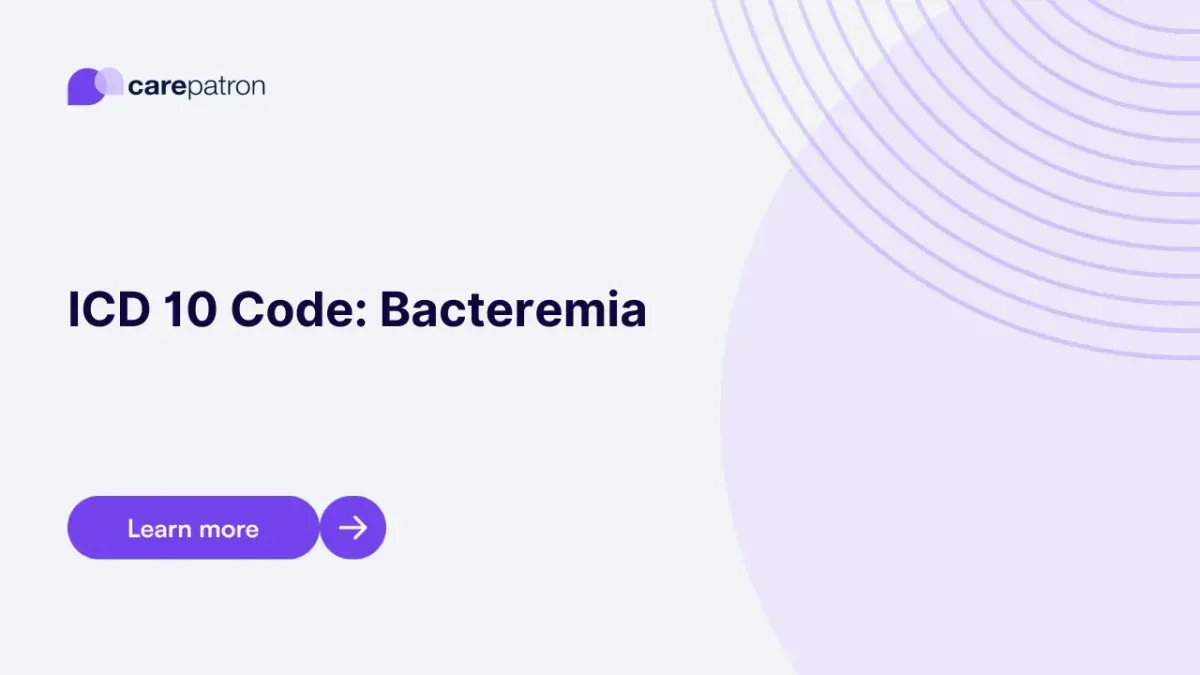
Bacteremia ICD-10-CM Codes
Read this short guide and learn about bacteremia ICD codes you can use!
Use Code
Commonly asked questions
Yes. But we don’t recommend using them because they are invalid and unbillable.
Healthcare professionals will conduct blood tests, sputum tests, urine tests, and wound cultures.
Bacteremia is treated with antibiotics, usually starting with broad-spectrum intravenous options and later adjusted to targeted therapy based on the identified bacteria and its antibiotic sensitivity.
EHR and practice management software
Get started for free
*No credit card required
Free
$0/usd
Unlimited clients
Telehealth
1GB of storage
Client portal text
Automated billing and online payments
